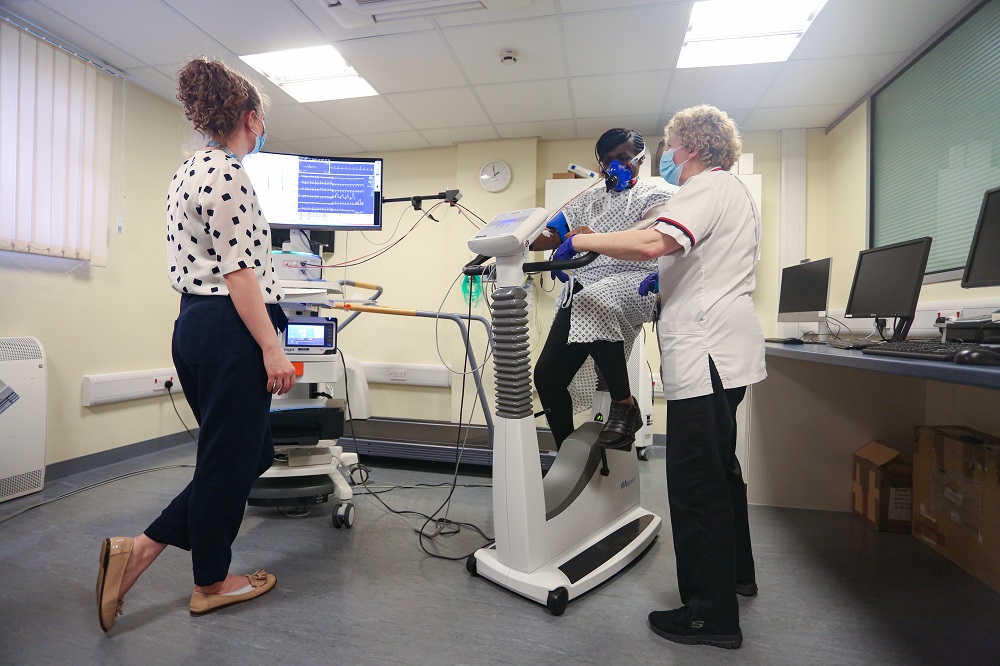University Chancellor volunteers for BRC cardiovascular study

An NIHR Leicester BRC study seeking to discover the effect type 2 diabetes has on the heart has enrolled the University of Leicester’s Chancellor, Dame Maggie Aderin-Pocock MBE, as its latest healthy volunteer participant.
As a volunteer on the PREDICT study, Dame Maggie underwent a number of detailed tests and scans of her heart at the National Institute for Health and Care Research (NIHR) Leicester Biomedical Research Centre (BRC) at Glenfield Hospital on 11 June 2024.
Professor of Cardiac Imaging, Gerry McCann, who is leading the study, said: “Research tells us that type 2 diabetes has subtle effects on the heart’s ability to pump blood round the body, but we know very little about why this is the case.
“To find out more we’re taking very detailed scans of the heart and also performing other tests to check the heart’s structure and function. We’re doing this in both patients with type 2 diabetes, and participants without the condition, like Dame Maggie, to compare our results against.”
After undergoing a blood test, electrocardiogram (ECG), echocardiogram, CT calcium score, bicycle exercise test and MRI scan at the NIHR Leicester BRC at Glenfield Hospital, Dame Maggie Aderin-Pocock said: “As a scientist I know how important it is that a wide range of people of different ages and ethnicities participate in studies like this one, so the data researchers collect reflects the population.

“Taking part today has been really interesting. A well as having blood taken I’ve also gone through a whole series of tests looking at my heart in detail. It’s been absolutely fascinating.”
Dame Maggie will go home wearing a device to measure her activity over the next eight days, and will have her blood pressure taken over the next 24 hours.
Her blood will be tested for a protein that shows how much strain the heart is under, and will give the researchers more information about her liver and kidney function. It will also be tested to check the level of vitamins and fats (lipids) it contains.
Dr Alice Cowley added: “We’re incredibly thankful to Dame Maggie for giving up her time to take part in our study.
“We’re only able to undertake research studies because participants with and without health conditions understand the value of what we do and what our findings could mean to patients in the future, then give us their time so willingly.”
To discover more about the research currently taking place at the NIHR Leicester BRC please visit: www.leicesterbrc.nihr.ac.uk